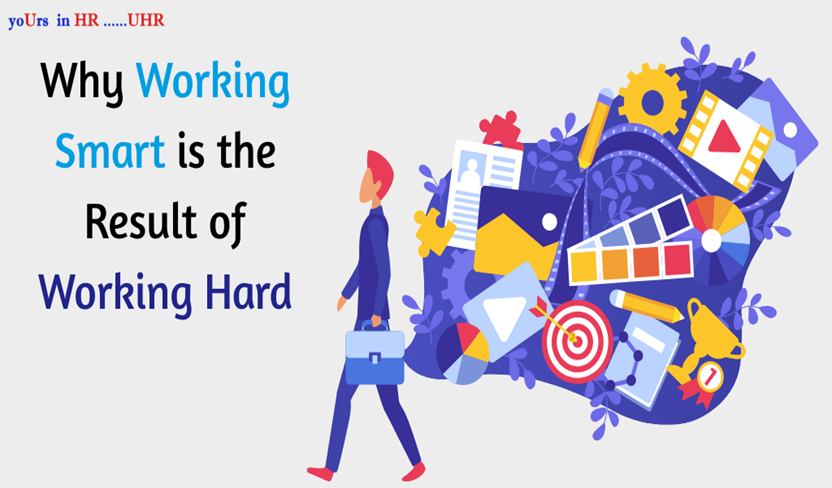
Work smarter, not harder.
We all must be familiar with the above quote.
But there lies a paradox behind this which we often don’t understand.
Before we work smarter, we need to understand how something actually works, thoroughly. It is only then we will be able to understand that what is the smarter thing that we can do. We will have to engage with the task at hand. We will have to undergo multiple processes of trial and error. We might even have to fail, succeed, fail, succeed in cycles. It is then that we will understand what to do to work smarter.
In other words, to work smarter, we will have to work hard at it first.
Let us think about certain examples regarding this:
An artist will have to understand thoroughly how the colours blend with each other, the exact texture the canvas has that enables it to bring out the best in the colours. They will have to understand how perspective works, how life translates onto the canvas and so on.
In other words, they will have to work hard at their art first, and then once they have gained the mastery, they can start working smarter, and make use of techniques that work the best for them.
In a new job, you will first have to understand your work responsibilities thoroughly. For that, you will need to perhaps give an hour or two extra for your shift. You may have to do some double, triple checks initially before you learn how to figure something out in a single glance. You may have to make some mistakes before understanding how to do something without making those mistakes.
Any professional, in whatever field they are can’t become a smart worker before becoming a good worker first. They must experience learning, making mistakes and learning again.
Even AI needs to go through hoards of data, and course correct the self-learning to work smartly!
Not just in skill development. Think how:
To deal with a ‘difficult’ client smartly, you may have to work hard at understanding their previous records, go over multiple files. You may have to understand how the earlier meetings have gone, what has worked and what has not worked, how your other colleagues have dealt with them and so on. Only then you will be able to deal with them smartly.
Or how in order to conduct a smooth meeting, you must work hard on developing the agenda structure, so that when the meeting does come up, you can make smarter decisions about task management, the issues in focus, and delegation of objectives.
Working smarter isn’t simply about using shortcuts to achieve something. It is not about working less. It is not about avoiding work. Working smarter comes from working harder at first. To quote author Shane Parrish,
‘Smarter approaches aren’t universal shortcuts, they’re contextual insights uncovered through deep, sustained effort.’
To cut out unnecessary work, you need to understand what unnecessary work is. To develop a shortcut, one must first understand what is wrong with the longer route. Working smarter is a ‘smart’ blend of effort, experience, and hard work. Smart work is the eventual result, not an immediate substitute for hard work.

